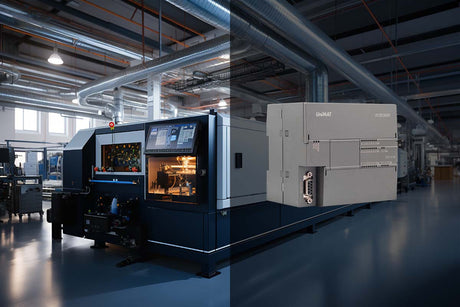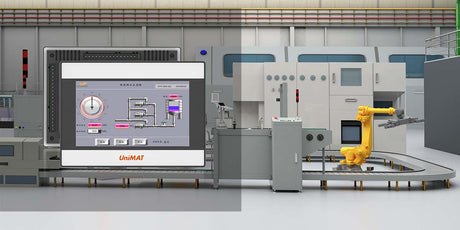Industry 4.0, also known as the Fourth Industrial Revolution, is transforming the world of industrial automation. This revolution is characterized by the integration of advanced technologies such as artificial intelligence (AI), the Internet of Things (IoT), and big data analytics. In this blog post, we will explore the development direction and trends of Industry 4.0 in industrial automation.
- Smart Manufacturing
Smart manufacturing is a key trend in Industry 4.0. This involves the integration of advanced technologies to create more efficient and flexible manufacturing processes. Smart manufacturing enables the use of real-time data to optimize production, reduce waste, and improve quality. It also enables the creation of more customizable products and services to meet the demands of customers.
- Digital Twins
Digital twins are virtual replicas of physical products or processes. They are created by using data from sensors and other sources to simulate the behavior and performance of physical objects. Digital twins enable companies to optimize processes, predict maintenance needs, and reduce downtime. They can also be used to create more innovative and sustainable products and processes.
- Cybersecurity
As Industry 4.0 relies heavily on data and connectivity, cybersecurity is a critical area of focus. Cyberattacks can have devastating consequences for companies, including loss of data, downtime, and damage to reputation. As a result, companies are investing in advanced cybersecurity measures to protect their systems and data.
- Human-Machine Collaboration
Industry 4.0 is not about replacing humans with machines, but rather about enhancing human-machine collaboration. Advanced technologies such as AI and robotics are being used to automate repetitive tasks and enable workers to focus on more complex and creative tasks. This can lead to increased job satisfaction and productivity.
- Sustainable Manufacturing
Sustainability is becoming increasingly important in Industry 4.0. Companies are seeking to minimize their environmental impact by reducing waste, using renewable energy sources, and creating more sustainable products and processes. This not only benefits the environment but can also improve brand reputation and customer loyalty.
In conclusion, Industry 4.0 is transforming the world of industrial automation. Smart manufacturing, digital twins, cybersecurity, human-machine collaboration, and sustainable manufacturing are just a few of the key trends in this revolution. As companies continue to adopt advanced technologies and embrace these trends, we can expect to see even more exciting developments in the years ahead.









